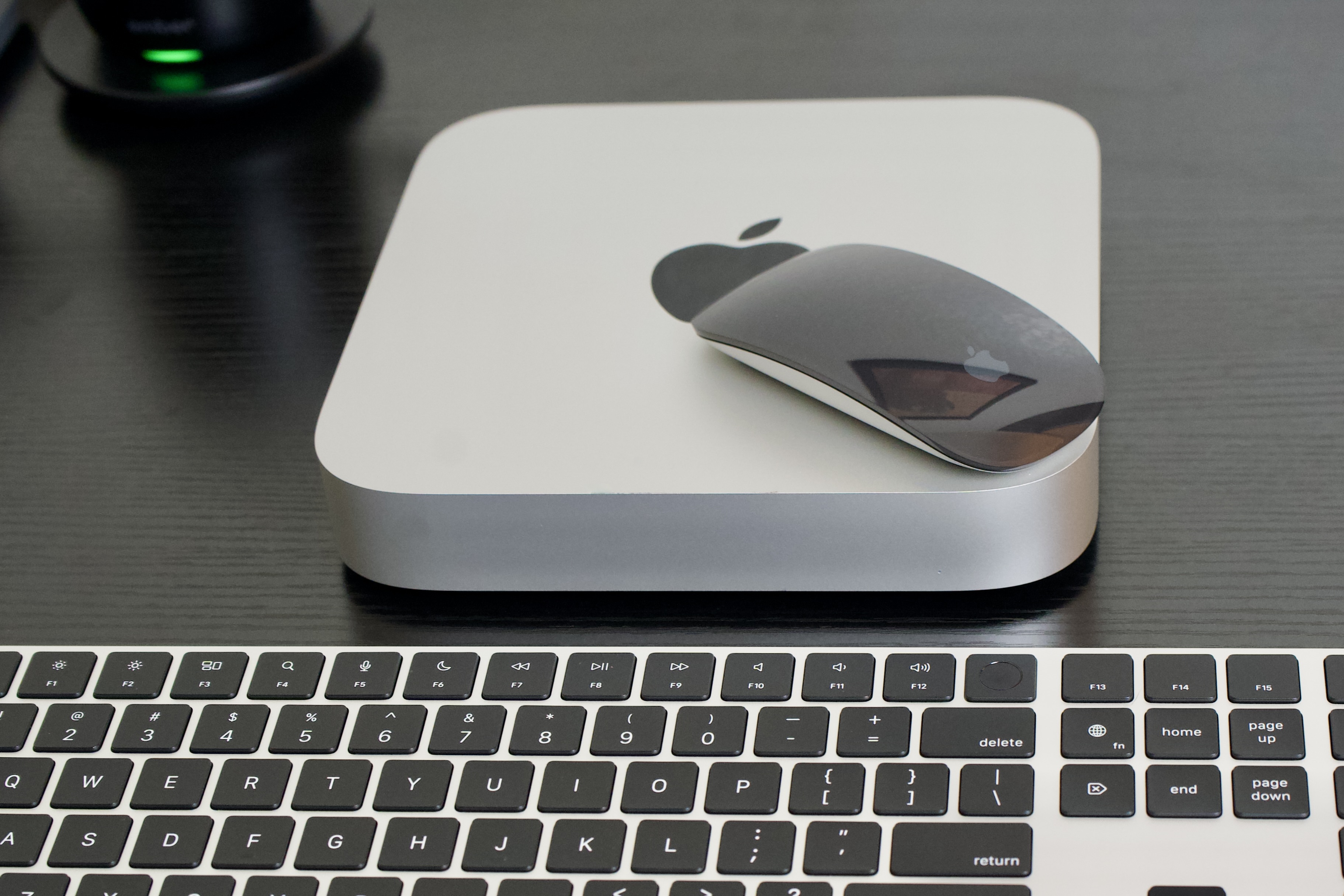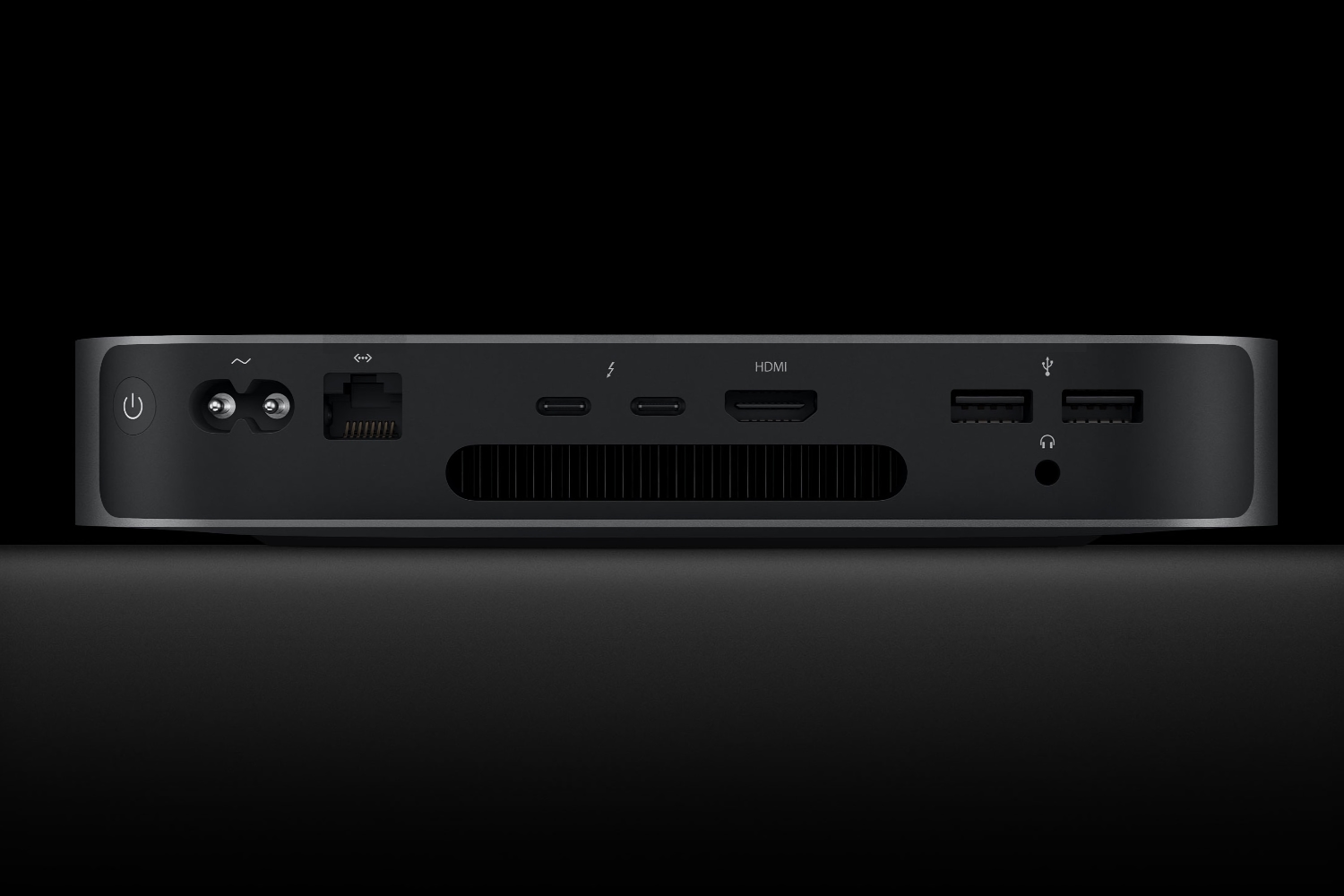Apple’s M3 chip has been available since the end of October 2023. It features in the MacBook Pro M3 and iMac and was recently added to the MacBook Air, but it is still absent from the Mac mini. How long will we have to wait for Apple to roll out the M3 to the rest of the range? Or will Apple skip it and decide to release a new Mac mini with an M4 chip?
This article is designed to help you figure out what’s happening with the M3 and M3 Pro versions of the Mac mini–or if Apple skips the M3 series and goes straight to M4. We’ve gathered all the information from rumors and reports in one spot and will provide insight as to what’s feasible and what’s not.
We’ll update this article whenever new information becomes available.
Update September 1, 2024: Bloomberg’s Mark Gurman reports that the upcoming M4 Mac mini will have five USB-C ports and no USB-A ports.
See our MacBook Pro M3 review and our MacBook Pro M3 Pro review. We also have an iMac M3 review and M3 MacBook Air review.
New Mac mini: Skipping the M3, straight to M4?
An April 11 report by Bloomberg’s Mark Gurman said that Apple plans to update the Mac mini with an AI-enhanced M4 chip in the second half of 2024. On Apple 21, Gurman stated that Apple will likely skip an M3 update for the Mac mini and go straight to M4 later this year. On August 4, Gurman reported that the M4 Mac mini will be released in 2024.
New Mac mini: Release date
- M3 Mac mini: May 7 event
- M4 Mac mini: Late 2024
Apple released the M2 & M2 Pro Mac mini over a year ago in January 2023. Before that, the M1 Mac mini was released in November 2020. That’s over two years between the M1 and M2 Mac mini, but the Covid pandemic affected production. There should be no reason for the launch of the M3 and M3 Pro Mac mini to be delayed, especially since the M3 and M3 Pro chips are available in other models.
If Apple does continue with an M3 Mac mini, we could see it at Apple’s spring event on May 7, or at WWDC in June. In early August 2023, Bloomberg’s Mark Gurman reported that Apple was performing preliminary tests on a M3 Mac mini, suggesting a new M3 model is in the pipeline.
In June, Mark Gurman reported that the Mac released schedule had not changed. The M4 Mac mini is not expected until the end of 2024 or early 2025. In August, Gurman reported that an M4 Mac mini will be released before the end of 2024.
Apple will hold an iPhone 16/Apple Watch 10 launch event in September (see how to watch the Apple September event live stream), but new Apple products launch throughout the year – see when is the next Apple event to learn more about the company’s product launch plans.
The M2 Pro Mac mini.
Jason Cross / Foundry
New Mac mini: Price
- Price drops outside the U.S. are somewhat likely.
Rumors about the M3/M4 Mac mini have not addressed prices and the price is unlikely to change inside the U.S. However, we do hope that there will be price drops outside the U.S. to reverse price hikes a few years ago.
Apple has been adjusting prices following previous price hikes. When Apple has updated Macs and iPhones since late 2023 it reduced some prices in locations outside the U.S. The U.K. prices of the M3 MacBook Air, for example, ‘match’ the U.S. prices. For example, the M2 MacBook Air now costs $999/£999. That’s a good sign for the M3 Mac mini–it could follow the same standard configuration prices of $599/£599 (currently £649) and $799/£799 (currently £849) when it is finally released. In 2020, the M1 Mac mini had prices of $699/£699 and $899/£899.
New Mac mini: Processor and specs
- M3: 3nm chip with 8-core CPU, 10-core GPU, 8GB unified memory (16GB and 24GB options)
- M3 Pro: 11 or 12 core CPU, 14 or 18 GPU cores, 18GB unified memory (36GB option)
- M4: AI enhancements
We have a fair idea of what to expect from the Mac mini M3 and M3 Pro because we have already seen those chips in the MacBook Pro, iMac, and MacBook Air. Apple is said to put an AI emphasis on the M4 so that it could have similar CPU and GPU specs as the M3 but with a larger Neural Engine and more unified memory.
The new 3nm process used for the M3 (and possibly for the M4) allows more transistors to fit on a chip, which should provide a performance boost. The M3 will also offer better power efficiency, so the temperature considerations required for the M1 or M2 Mac mini aren’t the same as the M3, which could allow it to run faster because it doesn’t get as hot.
In addition, the M3 GPU is faster and more efficient and features Dynamic Caching, a new technology that brings features like hardware-accelerated ray tracing and mesh shading to the Mac.
As for the amount of unified memory, Apple still offers the standard configuration of 8GB for the M3 and options for 16GB and 24GB, as with the M2. For the M3 Pr,o there is up to 36GB of unified memory available, but the standard configuration is now 18GB memory (up from 16GB).
For more information read about how the different generations of Mac processors compare.
New Mac mini: Ports/Connectivity
- Possibly five USB-C ports and no USB-A
When Apple released the M1 Mac mini in 2020, the company reconfigured the ports so that it had two Thunderbolt/USB-C ports instead of the four that were on the Intel-based Mac mini. Apple.
In September, Bloomberg’s Mark Gurman reported that the M4 Mac mini will have five USB-C ports, two on the front and three on the back. It will not have USB-A ports. He also said it will have ethernet and HDMI.
The M2 Mac mini already has Wi-Fi 6E and Bluetooth 5.3, but Apple could opt for Wi-FI 7 and Bluetooth 5.4.
Apple will likely not change the port configuration on the M3 Mac mini.
Apple
New Mac mini: Design
- Hints of a possible Mac mini redesign with the M4 update.
The current Mac mini features a 7.75-by-7.75-by-1.41 inch (19.7-by-19.7-by-3.6 centimeter) external design. In August, Bloomberg’s Mark Gurman reported that one of the Macs will get a “dramatic change” in its design along with its M4 update. Though Gurman didn’t specifically say that the Mac mini was going to be the Mac with the new design, the Mac mini has had its design for six years, leading to speculation that the M4 Mac mini could be the Mac being referenced.
Source : Macworld











